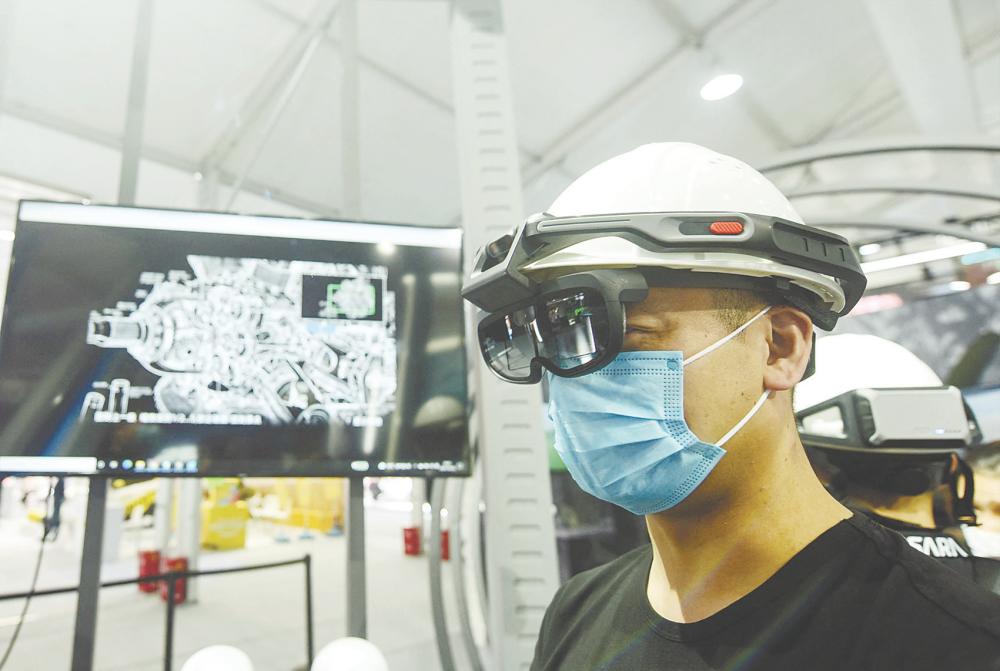IN the grand theatre of human progress, we stand on the precipice of a new act, where the protagonists are not flesh and blood but silicon and code.
Artificial intelligence (AI), once the stuff of science fiction, has stepped into the spotlight, promising to revolutionise every corner of our existence.
Yet, as we marvel at the brilliance of these artificial minds, we must ask ourselves: Are we dancing with the future or are we being led astray by a digital pied piper?
AI is a double-edged sword – its sharpness promising to heal and to harm. Like a painter with infinite brushes, it has the power to create masterpieces of efficiency, precision and innovation.
In medicine, AI holds the potential to diagnose diseases with an accuracy that rivals the best of human doctors.
In agriculture, it can predict and manage crop yields with unparalleled foresight. In every sector, AI promises to be the lighthouse guiding us through the fog of complexity.
But even as we celebrate these advances, we must not lose sight of the shadows that AI casts. The intelligence we admire is also the harbinger of a profound disruption, one that threatens to unweave the delicate fabric of our society.
Jobs, once considered safe and secure, are being swallowed by the insatiable maw of automation.
The artisan, the craftsman, the skilled worker – figures who have shaped civilisations – now find themselves at risk of obsolescence, replaced by machines that do not tire, do not err and do not need a paycheck.
More insidious still is the potential for AI to amplify the biases and prejudices that have long plagued humanity.
These artificial minds, despite their inhuman brilliance, are not immune to the flaws of their creators.
In the hands of the reckless, AI can become a weapon, perpetuating inequalities and injustices with a speed and scale unimaginable in the analogue world.
The biases coded into algorithms, whether by design or by oversight, can lead to decisions that are as unjust as they are invisible, hidden behind a veneer of mathematical objectivity.
In our pursuit of AI, we may be at risk of losing something deeply human. The poet in us may falter as we come to rely more on the cold logic of machines and less on the warmth of human intuition.
The philosopher in us may wither as we outsource our moral dilemmas to systems that calculate without conscience.
The essence of what it means to be human – our capacity for empathy, creativity and ethical reasoning – may be eroded as we increasingly defer to our digital counterparts.
Yet, there is hope. The story of AI is not yet written, and the pen remains in our hands. We must approach this new era with optimism and caution, balancing our excitement with a deep sense of responsibility.
The key lies in ensuring that AI serves humanity, not the other way around. We must demand transparency, fairness and accountability from those who design and deploy these systems.
We must champion the values that make us human – compassion, justice and respect for the dignity of all people – as we navigate this uncharted territory.
In the end, the irony of intelligence, artificial or otherwise, is that it is a gift and a burden. Like fire, it can warm our homes or burn them to the ground.
The challenge before us is to harness this new flame, to ensure that it illuminates rather than incinerates.
The future is not a foregone conclusion, but a choice – a choice that we must make with wisdom, foresight and a profound respect for the human spirit.
The writer holds a BA in Mass Communication (Journalism) (Hons) and an MA in Media and Information Warfare Studies from Universiti Teknologi Mara as well as a PhD in Political Studies from Universiti Malaysia Sarawak. He currently serves as the principal assistant secretary at the Human Rights Commission of Malaysia in Sabah. Comments: letters@thesundaily.com









